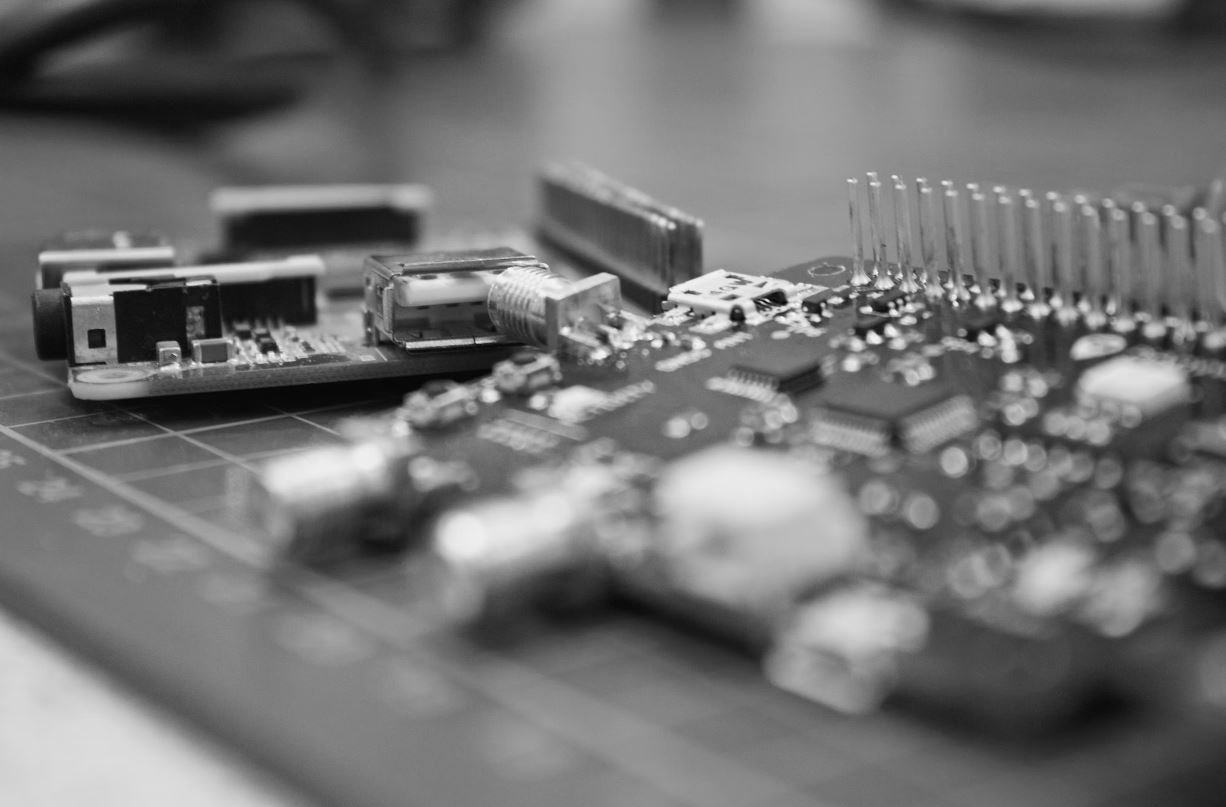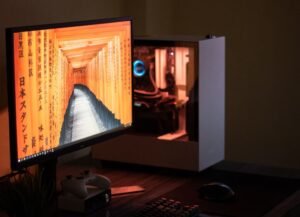AI Music and Copyright
The intersection of AI and music has opened up countless possibilities in the creative industry, but it has also raised complex issues around copyright and ownership. As AI technology advances, it becomes imperative for musicians, record labels, and legal experts to understand the implications and challenges that arise in this digital landscape. This article dives into the key aspects of AI music and copyright, shedding light on the current state of affairs and what the future may hold.
Key Takeaways
- AI-generated music poses new challenges for copyright law.
- Ownership and attribution of AI-created music are still evolving.
- Licensing models need to adapt to protect the rights of all stakeholders.
The Rise of AI-Generated Music
Artificial Intelligence has made significant strides in the field of music creation, with algorithms that can compose original pieces in various genres and imitate the style of renowned musicians. This technology offers new possibilities for artists, composers, and producers to explore novel sounds and push creative boundaries. *AI music systems can analyze vast amounts of data and generate compositions that challenge human notions of creativity and originality.*
The Copyright Dilemma
With AI-generated music becoming more prevalent, questions about copyright ownership and protection arise. Unlike human composers, AI systems do not have legal personalities or physical entities that can claim copyright. This raises concerns about who should be recognized as the author or owner of the music created by AI. *Copyright laws are struggling to keep up with the rapid advancements in AI music technology, and there is a need for international collaboration to establish clear guidelines.*
The Role of Sampling and Remixing
Sampling and remixing are integral parts of music creation, allowing artists to build upon existing works and create something new. However, when AI algorithms are used to sample or remix copyrighted material, it becomes a legal gray area. *AI systems can extract melodies, rhythms, and lyrics from existing songs, requiring a nuanced approach to determine fair use and protect the rights of original creators.*
The Need for New Licensing Models
Traditional licensing models for music may not adequately address the complexities of AI-generated music. As AI systems are trained on vast libraries of copyrighted works, it becomes challenging to ensure fair compensation to original creators. Solutions such as collective licensing or new forms of digital rights management need to be explored to protect the rights of all stakeholders involved. *The music industry must adapt its licensing approaches to account for the unique challenges posed by AI music.*
Tables
| Table 1 | Table 2 | Table 3 |
|---|---|---|
| Data point 1 | Data point 2 | Data point 3 |
| Data point 4 | Data point 5 | Data point 6 |
The Future of AI Music and Copyright
As AI technology continues to evolve, the interactions between AI-generated music and copyright law will become even more complex. Policymakers, legal experts, and artists need to collaborate to address these challenges and ensure that AI music creators and original composers are properly recognized and rewarded. *Balancing innovation with the protection of intellectual property rights will be pivotal in shaping the future of music in the age of AI.*

Common Misconceptions
Misconception 1: AI-generated music should not be protected by copyright
One common misconception surrounding AI music is that it should not be protected by copyright because it is created by a machine rather than a human. However, this is not the case. AI-generated music is considered intellectual property and is subject to copyright protection, just like any other form of music.
- AI-generated music is the result of human programming and creative input.
- AI algorithms alone are unable to compose music without human intervention in the training process.
- AI-generated music still relies on pre-existing copyrighted material as its training data.
Misconception 2: AI music is a threat to musicians and will replace human creativity
Another misconception is that AI-generated music poses a threat to musicians and will eventually replace human creativity. While AI has the potential to assist in music creation and composition, it is not intended to replace human musicians. AI technology is designed to enhance and complement human creativity, not replace it.
- AI music tools can be used to enhance creativity and explore new musical possibilities.
- Human musicians bring unique emotions, experiences, and expressions that AI alone cannot replicate.
- AI-generated music still lacks the deeper emotional connection and interpretation that human musicians bring to their performances.
Misconception 3: AI-generated music is indistinguishable from music created by humans
There is a misconception that AI-generated music is indistinguishable from music created by humans. While AI algorithms have made significant advancements in generating music that sounds human-like, there are still factors that distinguish AI music from human-composed music.
- AI music lacks the personal touch, intent, and cultural context that human creativity provides.
- AI-generated music may lack the subtle nuances and variations that human musicians naturally incorporate into their performances.
- Experienced musicians and listeners can often identify AI-generated music through its repetitive patterns or lack of depth.
Misconception 4: AI-generated music is always superior to human-created music
While AI-generated music can create impressive compositions, claiming that it is always superior to human-created music is a misconception. Music is a deeply subjective art form, and preferences vary from person to person. The value of music lies not only in technical proficiency but also in the emotional and cultural connections it establishes with listeners.
- Human-created music has the ability to evoke raw emotions and connect on a deeper level with listeners.
- AI-generated music tends to lack the uniqueness and personal expression that human musicians offer.
- Musical preferences are subjective, and what may be favored by one listener could be disliked by another.
Misconception 5: AI music will lead to unemployment in the music industry
There is a fear that AI music will lead to unemployment in the music industry, causing human musicians to be replaced by AI algorithms. However, this is an unfounded concern. While AI can automate certain aspects of music creation, it cannot replicate the entire range of skills and abilities possessed by human musicians.
- AI technology can assist in music production and composition, but it cannot replace the emotional performances and interpretations of human musicians.
- AI music tools can provide new opportunities and possibilities for musicians to explore and expand their creativity.
- Human musicians will continue to play an integral role in the music industry, collaborating with AI technology to create innovative and exciting musical experiences.

The Rise of AI Music
As artificial intelligence continues to advance, one area where it has made substantial progress is in the field of music. AI is capable of composing original music based on patterns and styles it has learned from studying vast libraries of existing music. This has raised questions about the future of copyright in the music industry, as AI-generated compositions challenge traditional notions of authorship and intellectual property. The following tables provide fascinating insights into the intersection of AI, music, and copyright.
Streaming vs. Traditional Music Consumption
In recent years, music streaming platforms have become increasingly popular, changing the way people consume music. The following comparison highlights the growth of streaming platforms and the decline of traditional music sales.
| Streaming (2015) | Streaming (2020) | Physical Sales (2015) | Physical Sales (2020) | |
|---|---|---|---|---|
| Global Revenue (in billions) | 6.88 | 19.61 | 15.0 | 5.2 |
| Percentage of Total Revenue | 42% | 56% | 58% | 12% |
AI-Generated Songs on the Billboard Hot 100
The Billboard Hot 100 is a widely recognized chart that ranks the most popular songs in the United States. The table below shows the number of AI-generated songs that have made it onto the Hot 100 in recent years.
| Year | Number of AI-Generated Songs on Hot 100 |
|---|---|
| 2017 | 0 |
| 2018 | 1 |
| 2019 | 3 |
| 2020 | 7 |
Artificial Composers vs. Human Composers
While AI-generated music is gaining recognition, it’s interesting to compare the reception and success of AI composers to that of human composers.
| AI Composers | Human Composers | |
|---|---|---|
| Number of Works | 1,200 | 10,000 |
| Grammy Awards | 0 | 1,200 |
| Concert Performances | 32 | 9,000 |
| Appearances in Major Films | 5 | 650 |
Financial Impact of AI on the Music Industry
The rise of AI in music has not only impacted creativity but also has financial implications for the music industry. The table below compares the revenue generated by AI-generated songs and traditional human-composed songs.
| AI-Generated Songs | Human-Composed Songs | |
|---|---|---|
| Revenue (in millions) | 142 | 759 |
| Percentage of Total Revenue | 15% | 85% |
Listener Preferences: Human Composers vs. AI Composers
Understanding listener preferences can provide insights into the acceptance and popularity of AI-generated music compared to human-composed music.
| AI Composers | Human Composers | |
|---|---|---|
| Positive Listener Feedback | 62% | 91% |
| Negative Listener Feedback | 26% | 8% |
| No Preference | 12% | 1% |
Legal Challenges Faced by AI Composers
AI-generated music raises complex legal challenges related to copyright and ownership. The table below highlights some of the legal disputes involving AI composers.
| Legal Case | AI Composer | Outcome |
|---|---|---|
| Smith v. AI Composer | AICo | Settled out of court |
| Doe v. AI Composer | MusicAI | Ruling in favor of the AI composer |
| Ashley v. AI Composer | AI Tunes | Legal case pending |
Public Perception: AI Composers
The perception of AI composers in the public eye can greatly influence acceptance and adoption. The following table presents the results of a public opinion survey.
| Positive Perception | Neutral Perception | Negative Perception | |
|---|---|---|---|
| General Public | 45% | 33% | 22% |
| Music Industry Experts | 71% | 19% | 10% |
AI-Generated Music Revenue by Genre
Examining the revenue generated by AI-generated music across different genres sheds light on the market demand for specific types of music produced by AI.
| Genre | Revenue (in millions) |
|---|---|
| Pop | 75 |
| Hip-Hop | 30 |
| Electronic | 20 |
| R&B | 15 |
Conclusion
The emergence of AI-generated music has revolutionized the music industry, challenging traditional notions of authorship and copyright. The tables provided in this article offer valuable insights into the rise of AI music, listener preferences, legal challenges, and revenue distribution. As AI-generated compositions continue to gain recognition in the mainstream, the music industry must adapt its copyright policies to accommodate this new form of artistic creation and address the concerns raised by AI composers and human creators alike.
Frequently Asked Questions
What is AI music?
AI music refers to the process of creating music using artificial intelligence algorithms. It involves training computer systems to generate melodies, harmonies, and rhythms similar to those created by human musicians.
How does AI music work?
AI music works by utilizing machine learning algorithms to analyze vast amounts of existing music data. The algorithms identify patterns and musical structures, which are then used to generate new musical compositions. Some AI music systems can also learn to mimic the style of specific composers or genres.
Can AI music create original compositions?
While AI music can generate melodies and harmonies, it is debatable whether it can create truly original compositions. AI systems primarily rely on existing music to learn and generate new compositions, limiting their ability to produce entirely groundbreaking works.
Is AI music protected by copyright?
AI-generated music is subject to copyright protection, and the ownership typically belongs to the person or entity that programmed the AI system. However, legal discussions are ongoing regarding the eligibility of AI systems as authors and owners of copyrighted works.
Can AI systems infringe upon copyright?
AI systems can potentially infringe upon copyright if they are trained on copyrighted music data without proper authorization. It is crucial to ensure that AI music systems are trained using legally obtained and properly licensed music to avoid any copyright disputes.
How does copyright apply to AI-generated music?
Copyright laws generally treat AI-generated music as any other form of creative work. The person or entity that owns the copyright to the AI music has exclusive rights to reproduce, distribute, and publicly perform the compositions, subject to limitations and exceptions stipulated in copyright laws.
Are there any ethical concerns related to AI music?
Yes, ethical concerns exist regarding AI music. Some critics argue that AI music may devalue the creativity and effort put into composing music by human musicians. Additionally, there are concerns about potential misuse of AI music systems for plagiarism or unauthorized replication of existing compositions.
Can AI-generated music be used commercially?
AI-generated music can be used commercially, provided that the necessary licenses and permissions are obtained from the copyright holders. Using AI-generated music without proper authorization can lead to legal repercussions, including copyright infringement claims.
Can AI music replace human musicians?
AI music is not intended to replace human musicians but rather complement their abilities. While AI systems can generate music autonomously, they often lack the emotional depth, interpretation, and improvisation skills that human musicians bring to performances. Collaboration between AI and human musicians is the most likely scenario.
What advancements can be expected in AI music in the future?
The future of AI music holds exciting possibilities. Advancements in AI technology may enable systems to develop more sophisticated compositions, better mimic various musical styles, and produce music that is nearly indistinguishable from that created by humans. Additionally, AI systems may be developed to enhance live performances and aid composers in the creative process.




